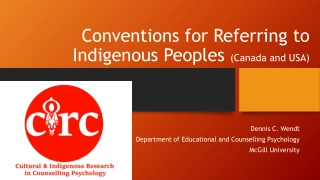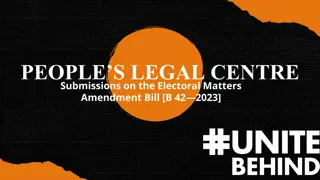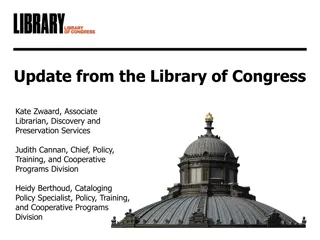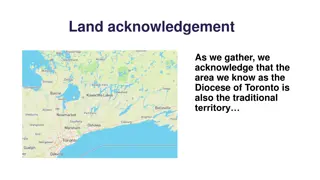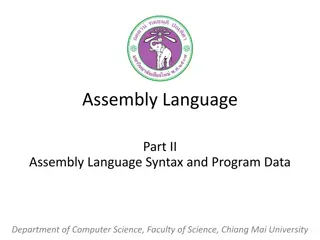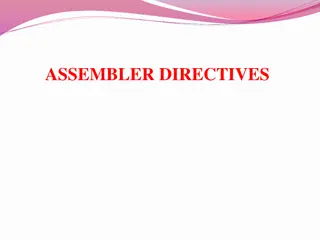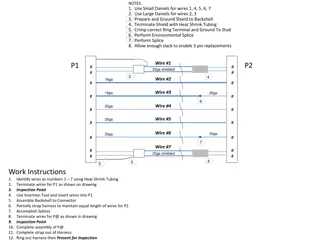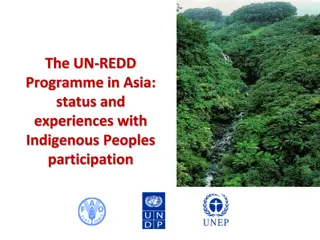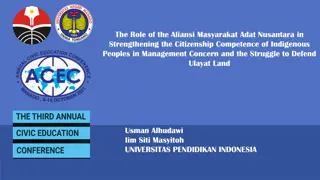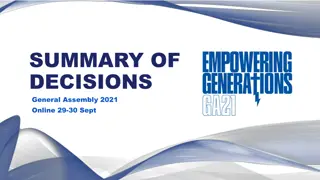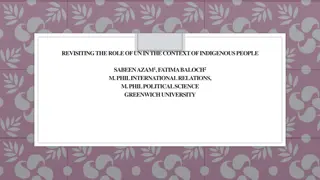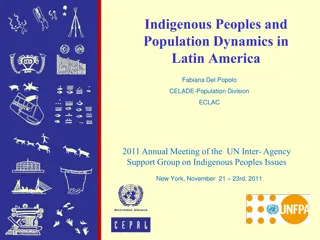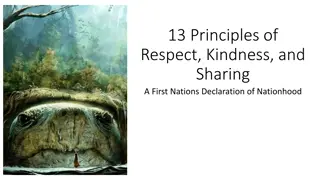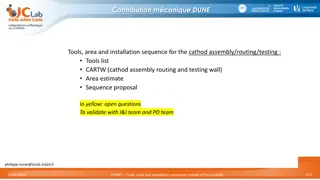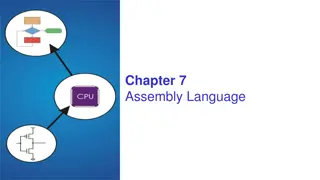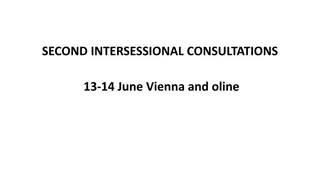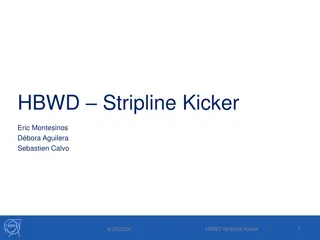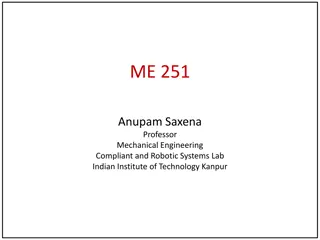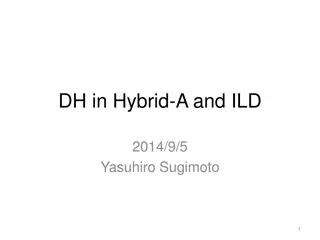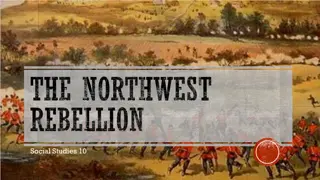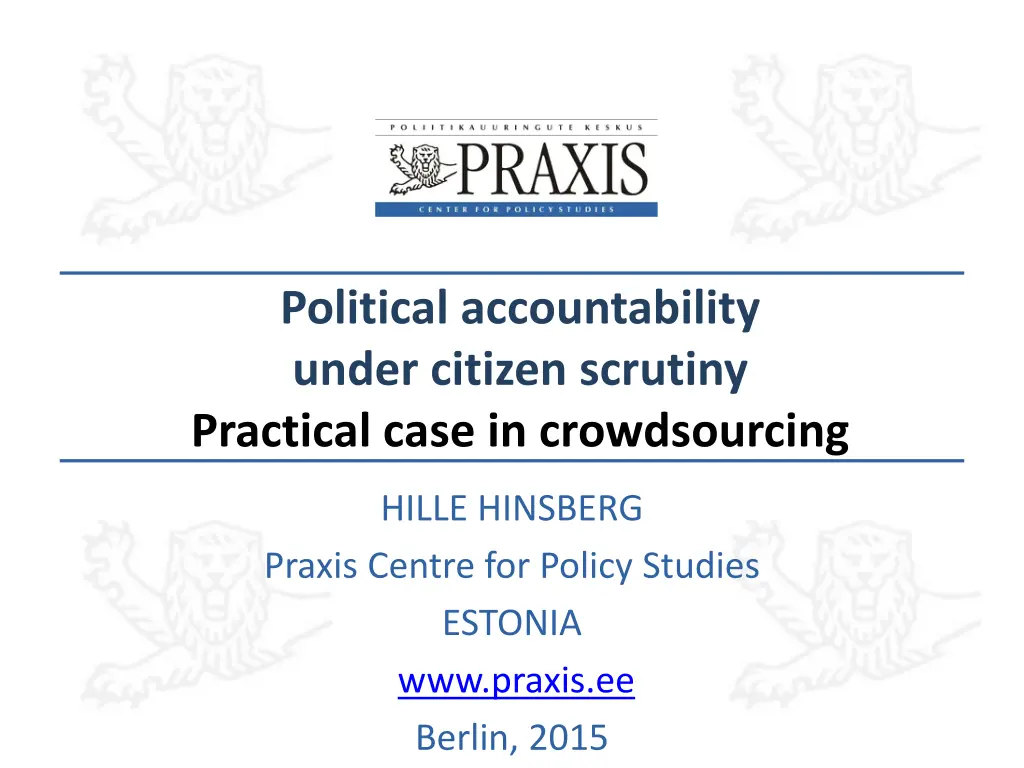
Citizen Scrutiny in Estonia: Strengthening Political Accountability through Crowdsourcing
Explore how citizen scrutiny and crowdsourcing were employed in Estonia to hold politicians accountable, following a case of anonymous donations to a political party. Public protests, civic participation, and collaborative efforts by civil society activists led to significant changes in political practices and legislation.
Download Presentation

Please find below an Image/Link to download the presentation.
The content on the website is provided AS IS for your information and personal use only. It may not be sold, licensed, or shared on other websites without obtaining consent from the author. If you encounter any issues during the download, it is possible that the publisher has removed the file from their server.
You are allowed to download the files provided on this website for personal or commercial use, subject to the condition that they are used lawfully. All files are the property of their respective owners.
The content on the website is provided AS IS for your information and personal use only. It may not be sold, licensed, or shared on other websites without obtaining consent from the author.
E N D
Presentation Transcript
Political accountability under citizen scrutiny Practical case in crowdsourcing HILLE HINSBERG Praxis Centre for Policy Studies ESTONIA www.praxis.ee Berlin, 2015
Estonia in Freedom House index: Democracy
Peoples Assembly process in 2012 2013: the trigger The problem: ruling Reform party accepts anonymous donations The whistleblower Silver Meikar, former MP, Reform party
Public protests in 2012 Street demonstrations and keen media coverage Petition collects 17,000 signatures Public resentment and mistrust towards all politicians; disengagement from party politics Investigation by the Prosecutor s Office on several cases of illegitimate donations Donations to Reform party decline
President calls for civic participation Five main issues outlined at stakeholder meeting, called upon by the President: Barriers to political movements Financing and financial reporting of political parties Public participation in policy making Electoral system regulation Political patronage and corruption
Teamwork by Civil Society activists: building the process for crowdsourcing Phase 1: 6,000 proposals and comments on web Phase 2: collating and analysis of web content Phase 3: impact assessment and expert opinion on proposed amendments Phase 4: stakeholder deliberation on main 5 issues Phase 5: grass-root participation, Deliberation Day 314 participants or 62% of recruited sample select proposals to be sent to the Parliament
Role of the Parliament President hands over all proposals created in deliberation process Parliament Constitutional Committee deliberates Parliament fractions form their opinion on proposals Committee starts drafting legislative changes Committee fails in its communication about the process
Results achieved 1 year after Out of final 15 proposals, 3 have made their way into legislation + 4 have been partially adopted Civic participation found its place in political agenda The amount of financing from the state budget to the political parties that did not meet the election threshold was increased A monetary fine will be imposed for accepting prohibited donations. The power of the Political Party Funding Supervision Committee to check the finances of parties was increased Legal act adopted for popular initiatives and presenting collective petitions to Parliament
Evaluation of the participation process Share of participants who were satisfied with the process. Comparison of 2 Swedish cities and People s Assembly (Surveys by University of rebro and Praxis) 60 50 40 Malm 30 Haparanda Estonia 20 10 0 Information to the public Information to participants Accesability/ease of use Possabilities for deliberation Impact on policy Overall satisfaction (index)
Attitudes towards citizen participation Estonia 1-5 Malm 6-8 9-10 Haparanda Scale: 0 10 20 30 40 50 60 70 80 90 100 1-5 Citizens should have less or the same level of influence on political decisions 6-10. Citizens should have more influence on political decisions
Change in trust vs social capital Decreasing trust for institutions Increasing trust for citizens and civil society -55 Parliament -50 Parties -46 Government President -28 Media -13 +27 Citizens +31 Civil Society 0 10 20 30 40 50 60 70 80 90 100 -3,00 -2,00 -1,00 ,00 1,00 2,00 3,00
Effects on political landscape The first law was adopted, originating from collective petitioning For national elections (1.03), several political platforms include Assembly proposals that were not yet adopted 2 new parties gained from Assembly proposals lower mandatory deposit for setting up candidates, parties saved 50,000 EUR only 500 members are required to form a Party, instead of previous 1000 persons

